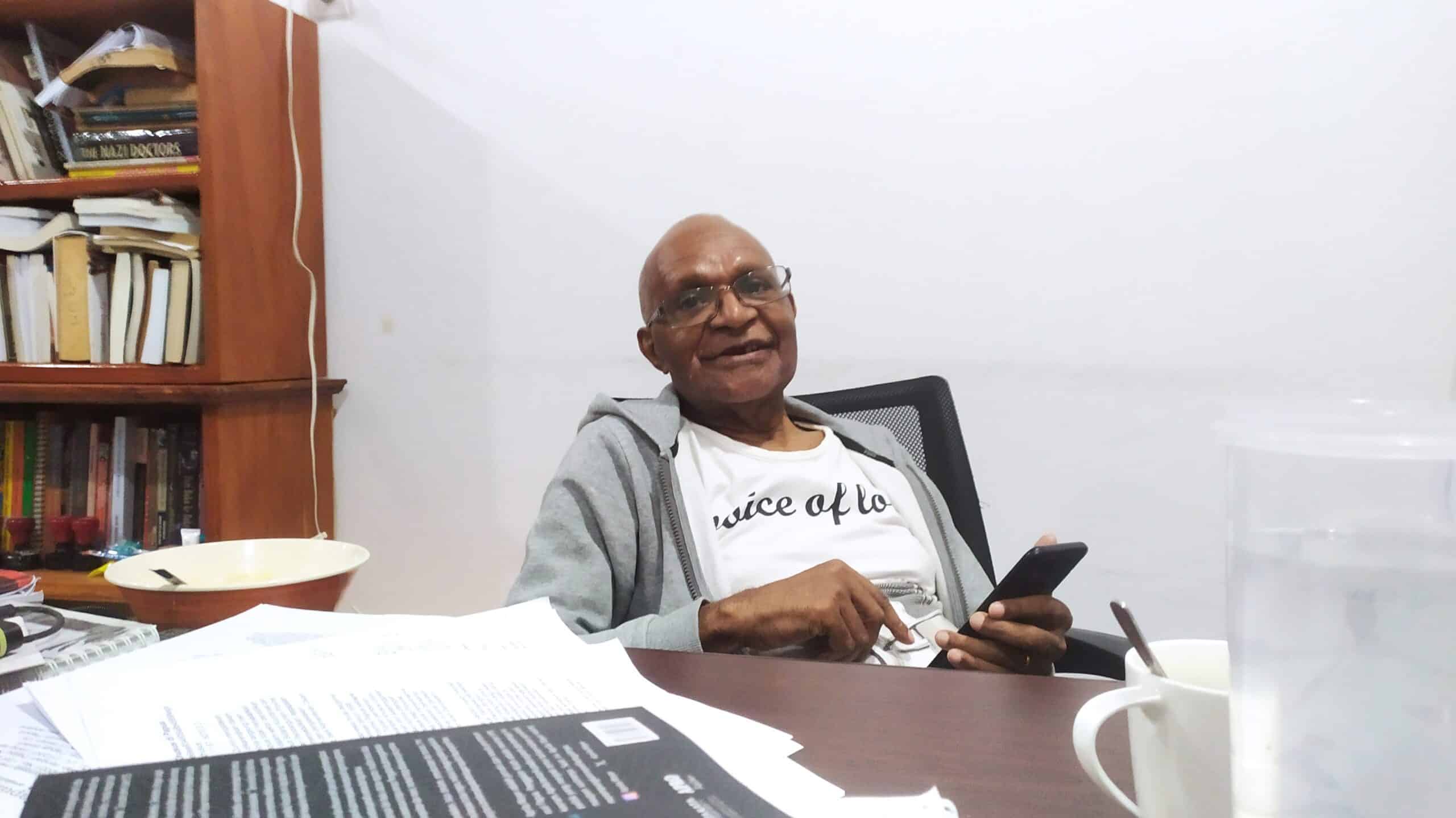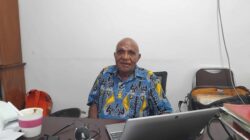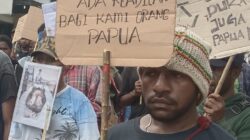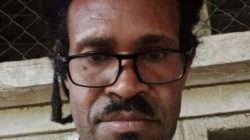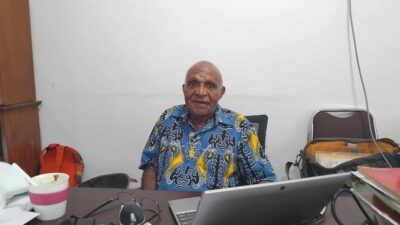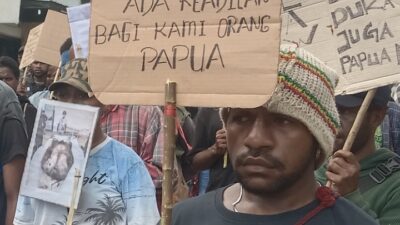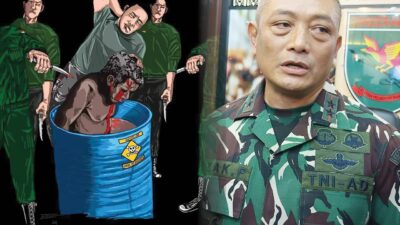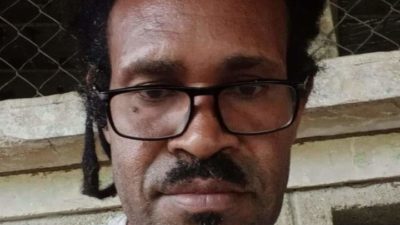Jayapura, Jubi – Rev. Benny Giay aprreciated the enthusiasm of Papuan artists through the art exhibition titled ‘Bholuh’ (From the Earth) organized by Udeido Collective in collaboration with Papuans Voices and Alyakha Art Center at Sophie Building, Jayapura City on Wednesday (31/1/2024).
Giay hoped that through this platform, a new generation of young Papuan artists will emerge.
“The development of the culture and art of the people of Papua has been neglected for years, ever since religions entered Papua,” he said in his speech at the Bholuh art exhibition.
According to him, the presence of these religions in the context of development has resulted in the damage to the identity and selfhood of the Papuan people.
“Therefore, allow me to represent the churches in asking for forgiveness. In the context of religious development, we have altered our identity and self through ‘western’ religions, shaping our nature, character, and orientation to the extent that we have forgotten our art,” he added.
He explained that, in reality, religion should be used to build integrity and nurture the seeds of goodness, integrity, and care for the land, culture, art, customs, and religions that exist.
“Therefore, in the religious context, there needs to be a change in thinking or paradigm,” he said.
Giay sees artistic movements like this as a step to encourage and revitalize the arts in Papua. This indicates the need for a change in mindset in terms of religion that supports the people of Papua.
Giay emphasized that the creativity of the people of Papua in art, culture, sports, and creative thinking has been present in this land for a long time. He urged the younger generation to explore and develop their talents.
“When I talk about music, I remember Arnold Ap; when I talk about football, I remember Boaz Solossa. Perhaps, through events like this, we can create a younger generation as great as Arnold Ap and Boaz Solossa,” he concluded.
Giay stressed that the talents of Arnold Ap and Boaz Solossa did not come by chance. “These talents emerged due to the support of parents, churches, society, and institutions in Papua,” he added. (*)


